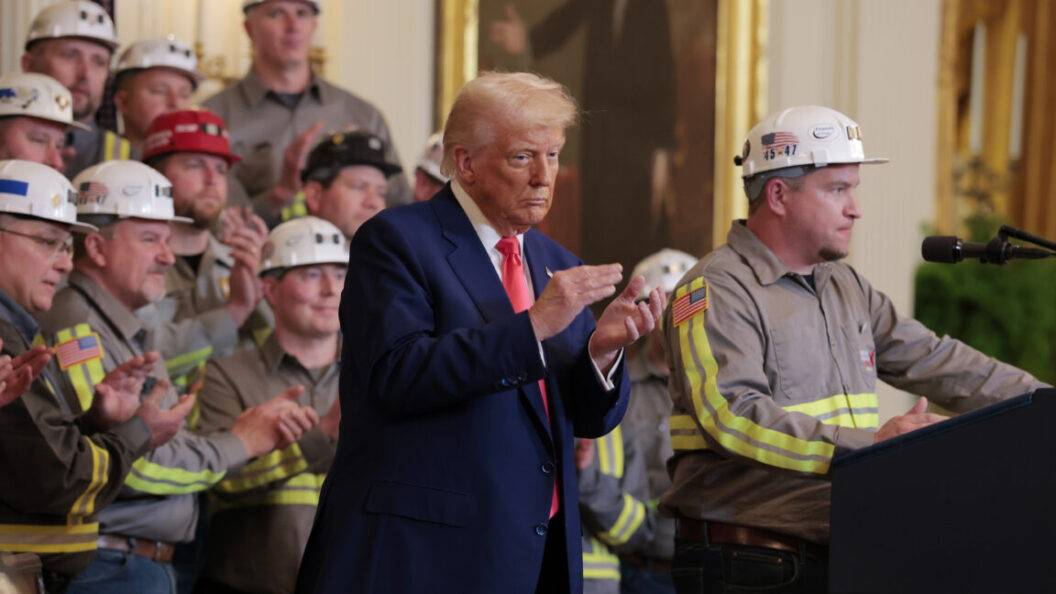U.S. Climate and Energy Policies Face Scrutiny Amid Isolationist Concerns
In a climate increasingly defined by international cooperation, concerns are mounting regarding the United States’ current administration’s approach to environmental policy and scientific collaboration. Many experts warn that an isolationist stance could significantly hinder the nation’s leadership role in global climate action and technological advancement.
Isolationism and Its Consequences
Schlenker-Goodrich, a prominent figure at the Western Environmental Law Center (WELC), critiques the administration’s efforts to ‘isolate’ the U.S. from global dialogues on climate change. He argues that these actions jeopardize not only scientific research but also the effectiveness of temperature reduction strategies crucial for the global environment.
“Those are global issues with immensely important domestic consequences,” he stated, reflecting the consensus among climate activists and scientists that a cooperative international approach is vital for tackling climate issues.
Missed Opportunities for Leadership
Brett Burger, an environmental policy analyst, emphasized that the current administration’s hesitance to engage on the international stage signifies a “missed opportunity for the United States”. He pointed out that America could take a leading role in the emerging green economy and play a pivotal part in global climate governance.
“We have a short window in which to make dramatic greenhouse gas emissions reductions. We’re losing time,” Burger noted, highlighting the urgency of addressing climate change amid growing skepticism about the commitment to environmental policies.
The Uncertain Future of Governance
The implications of these policies extend beyond environmental concerns. Burger posed a critical question regarding the effectiveness of the administration’s initial 100 days in office: “Is this first 100 days a success in any way, shape or form? Or is it a massive failure?” The long-term effects will largely depend on how the judicial system responds to what many perceive as an assault on the rule of law and administrative norms.
Similarly, Gisler of the Southern Environmental Law Center (SELC) echoed these sentiments, suggesting that the future landscape will be shaped by social responses to current policies. He referenced historical precedents where periods of government upheaval eventually led to progressive social reforms, asserting that a similar reaction could emerge from the current chaos.
“There is going to be a lot of disruption and chaos over the next several years,” Gisler warned. However, he believes that the administration’s policies do not align with public sentiment, particularly concerning environmental issues.
Administrative Actions vs. Announcements
Experts have noted a disconnection between the administration’s proclamations and practical actions. Burger stated, “We’ve seen a large number of announcements from agencies and executive orders and press releases from the White House, and far less actual administrative action.” He expressed hope that legal mechanisms will eventually lead to the annulment of many controversial orders, echoing sentiments from environmental organizations that are gearing up for legal battles to protect regulatory norms.
Michael Wall, the chief litigation officer at the Natural Resources Defense Council (NRDC), criticized the administration’s strategy of “flooding the zone” with numerous announcements, suggesting that it aims to overwhelm public discourse rather than comply with established laws. He reaffirmed that organizations like the NRDC, WELC, and SELC will not be deterred by this tactic.
Conclusion: The Path Ahead
The ongoing discourse around U.S. climate and energy policies reflects deeper societal values and priorities regarding environmental sustainability. The current administration’s approaches are not merely political but signify broader implications for future generations and global cooperation.
As the strategies of governance are increasingly challenged in courts, the path forward remains uncertain. However, the collective actions of environmental organizations and public advocacy will be crucial in shaping a more environmentally conscious future and reinforcing the importance of international collaboration in the face of climate change challenges.
Having faced a tumultuous beginning, the administration’s legacy will ultimately depend on its capacity to respond to public demands and the laws that govern society. The stakes could not be higher for the future of both the nation and the planet.









